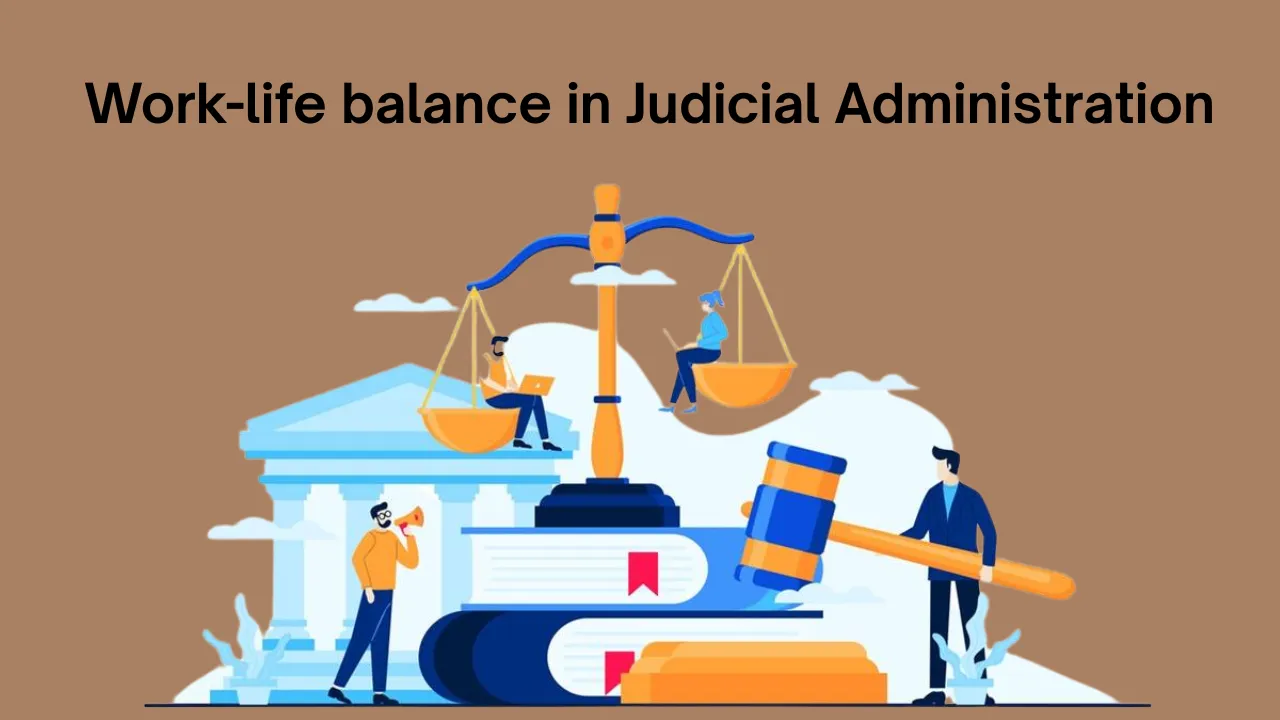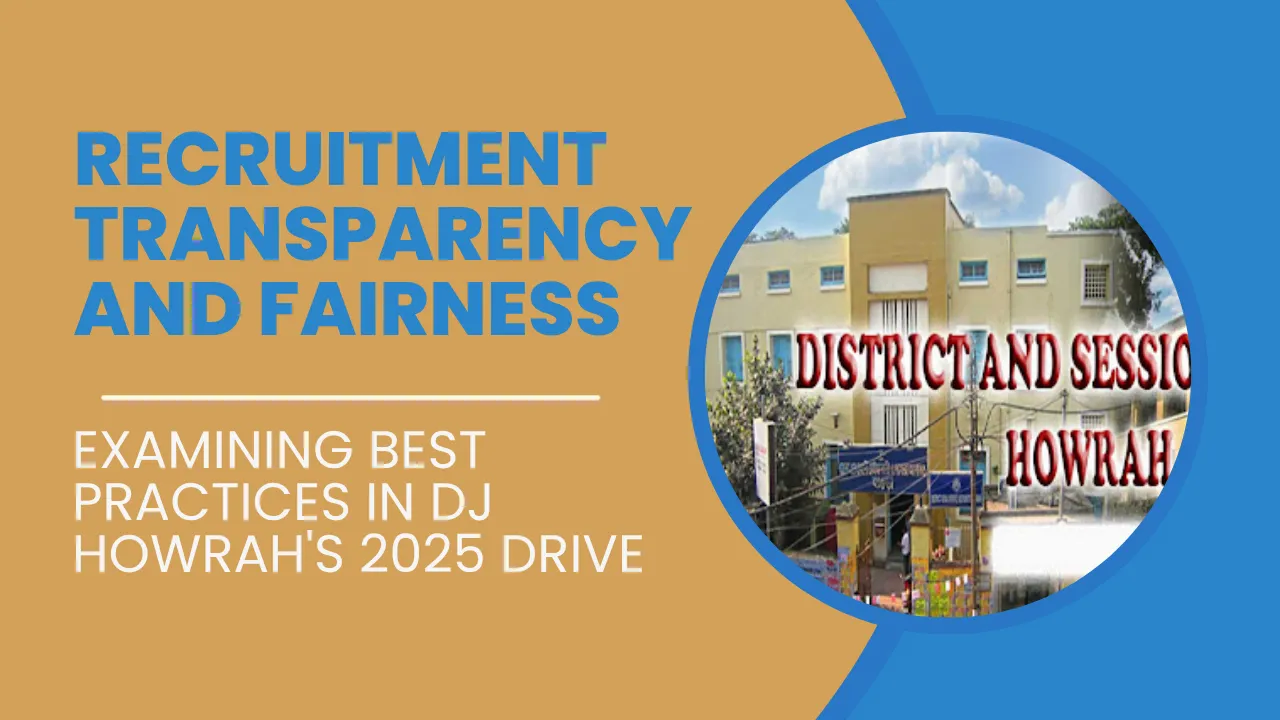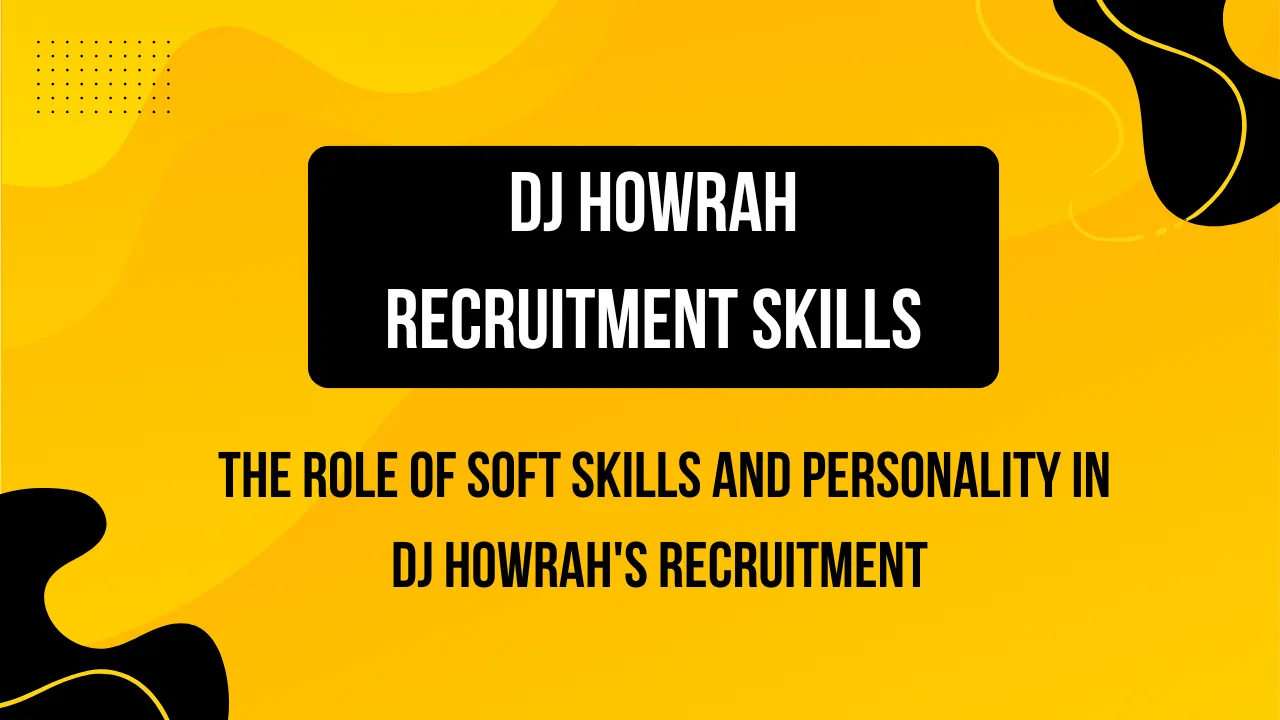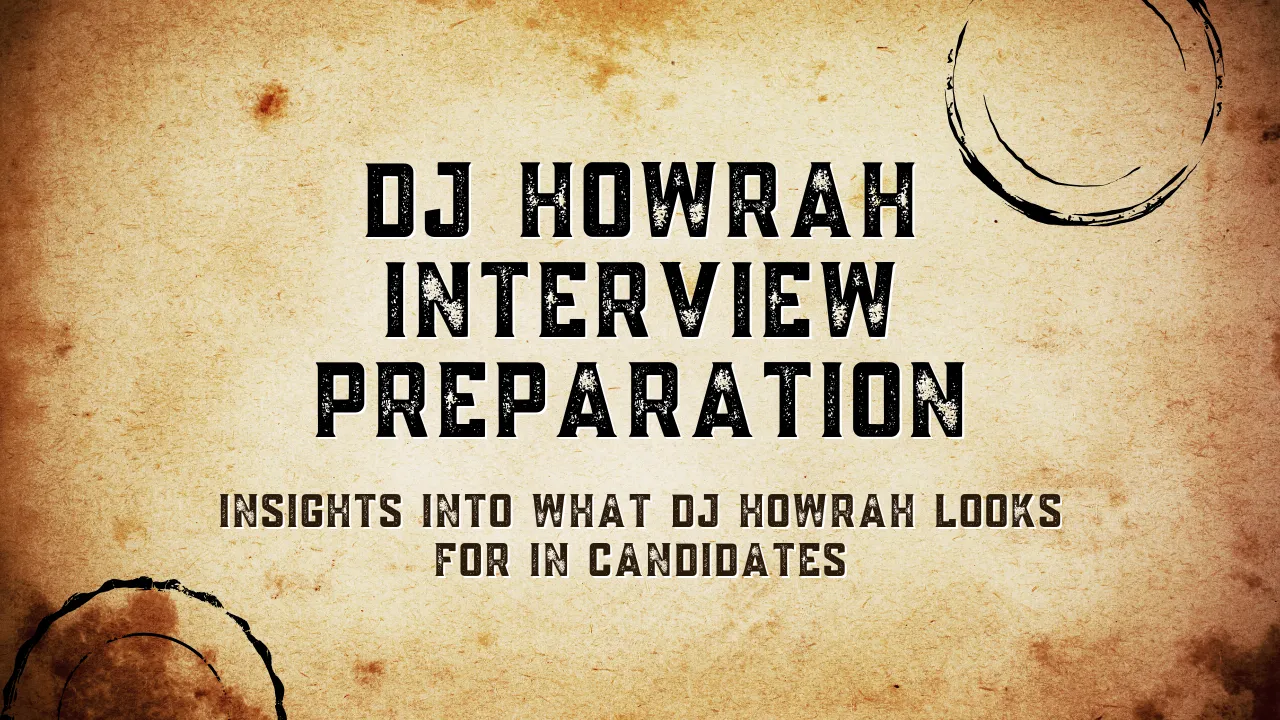Work-life balance in Judicial Administration: A career in judicial administration at the District Judge’s Court in Howrah offers stability, respect, and a clear path to public service. Beginners often expect structured hours, reliable routines, and room for personal growth.
Yet, the reality is more nuanced. Heavy caseloads, tight timelines, and the need to support senior judicial officers often stretch days beyond the official 10 AM–5 PM schedule, making flexibility and endurance essential traits for those preparing for DJ Howrah Recruitment 2025.
Work-life balance in Judicial Administration
In judicial administration, especially at Howrah, work-life balance in judicial administration is more about managing shifting demands than adhering to rigid schedules. While the court runs on a fixed 10 AM–5 PM calendar with weekends off, those stepping in through DJ Howrah Recruitment 2025 must brace for the ebb and flow of workload spikes. Case backlogs, urgent filings, and hearing preparations often require evening effort. Cultivating personal boundaries, stress-management habits, and supportive relationships will be key to sustaining both performance and well-being in this role.
Overview Table
| Aspect | Official Policy | Practical Experience |
| Working Hours | 10 AM–5 PM | Extended hours during hearings or high caseloads |
| Weekly Schedule | Sundays + select Saturdays off | Work on some weekends during peak periods |
| Administrative Duties | Routine clerical & scheduling | Urgent filings, judge support, hearing prep |
| Support to Judges | Standard assistance | Evening document updates and file organization |
| Well-being Framework | Leave, healthcare, pension | Peer support, self-managed stress relief |
The Standard vs. The Reality: Typical Working Hours
Though the court day nominally ends at 5 PM, in practice, staff recruited under DJ Howrah Recruitment 2025 often stay late. Heavy case volumes mean last-minute document reviews, file organization, and courtroom preparations spill into evenings and occasionally weekends.
Case Pendency and Workload
India’s judiciary faces severe backlog challenges. Howrah is no exception. This persistent caseload means new clerks, stenographers, and assistants must frequently prioritize deadline-driven work—requiring flexibility and dedication beyond formal hours.
“Beyond 5 PM” Responsibilities
Tomorrow’s hearings often demand tonight’s effort. Tasks like petition drafting, record scanning, and case input for e-filing systems don’t always finish on time, and files for the next day’s court must be ready before staff leave.
The Judge’s Burden Reflects on Staff
Judges at district courts often work 14–15 hours to meet judgment writing deadlines and hearing schedules. Administrative staff, especially those onboarded via DJ Howrah Recruitment 2025, share this workload and must be prepared to align with their mentor judges’ rigorous pace.
Demands of the Job: Beyond the Job Description
Precision and Accuracy
Court documents demand meticulous care—one error could derail a case. New recruits must cultivate thoroughness and attention to detail.
Confidentiality and Integrity
Handling sensitive materials obliges staff to uphold confidentiality and follow stringent judicial protocols from day one.
Interaction with Public
Administrators are often the first point of contact for litigants and lawyers. They need patience, clear communication, and empathy to manage tense situations gracefully.
Technological Adaptation
E-courts and digitized files are rapidly transforming court operations. Staff joining via DJ Howrah Recruitment 2025 must quickly adapt to digital systems and learn software for case management and e-filing.
Employee Well-being Initiatives: The Current Landscape
Although formal wellness programs for court staff at DJ Howrah aren’t widespread, government employee benefits—leave policies, medical care, and pensions—are in place. Informal channels—mentoring, peer support, and self-maintained work-life habits—help staff cope with stress.
A Realistic Perspective for Aspiring Recruits
Strengths of the Role
- Stability and respect: Government service remains one of the most secure career choices.
- Meaningful impact: Supporting justice delivery offers a profound purpose.
- Skill development: Case management, communication, and legal acumen grow rapidly.
Challenges Ahead
- Extended hours: Peaks in workload are routine, requiring stamina.
- Emotional diligence: Handling legal materials and enforcing confidentiality is mentally demanding.
- Self-reliance on mental health: Formal support may be scarce—personal resilience is key.
Tips for Maintaining Balance
- Plan and prioritize: Use daily checklists to separate urgent from routine work.
- Learn to say “no”: Setting boundaries, discussing deadlines, and pushing back when overwhelmed fosters better balance.
- Lean on peers: Shared experience helps—form working friendships for mutual support.
- Practice self-care: Short breaks, walks, and designated rest time matter.
- Speak up proactively: If workload becomes excessive, discuss solutions with supervisors.
Preparing for DJ Howrah Recruitment 2025
Applicants gearing up for this recruitment drive should:
- Develop strong time management, digital literacy, and stress management skills.
- Understand the reality of backlogged court systems and learn to handle variable demand.
- View the role not just as clerical work, but as an active pillar in judicial efficiency.
Conclusion
Work-life balance in judicial administration at DJ Howrah is real—but not static. Official hours offer structure, but demands call for dedication and resilience. Recruits entering through DJ Howrah Recruitment 2025 should embrace the opportunity, while being ready to handle challenges head-on. With the right frame of mind, personal support, and planning, it’s possible to thrive professionally while maintaining well-being.
FAQs
1. What are the court’s official working hours?
Staff typically work from 10 AM to 5 PM, but evening work is sometimes expected.
2. Is overtime required often?
Yes, especially when courts have mounting backlogs or hearing preparations.
3. Are there mental health programs for staff?
No formal programs currently, but peer support and informal mentoring are available.
4. How can staff maintain balance?
Use task prioritization, set clear boundaries, and engage in stress-relief practices.
5. Is joining DJ Howrah worth the effort?
Absolutely—for job stability and meaningful work. However, it demands adaptability and commitment.
Ready to thrive in judicial administration?
Prepare well for DJ Howrah Recruitment 2025 by honing administrative, digital, and resilience skills. Build a strong personal support system and embrace stress-management practices. Join our network to access preparation resources, connect with mentors, and gain insight into balancing judicial duties with a healthy life. Your journey toward a rewarding and balanced legal administration career starts today—let’s take it together.












